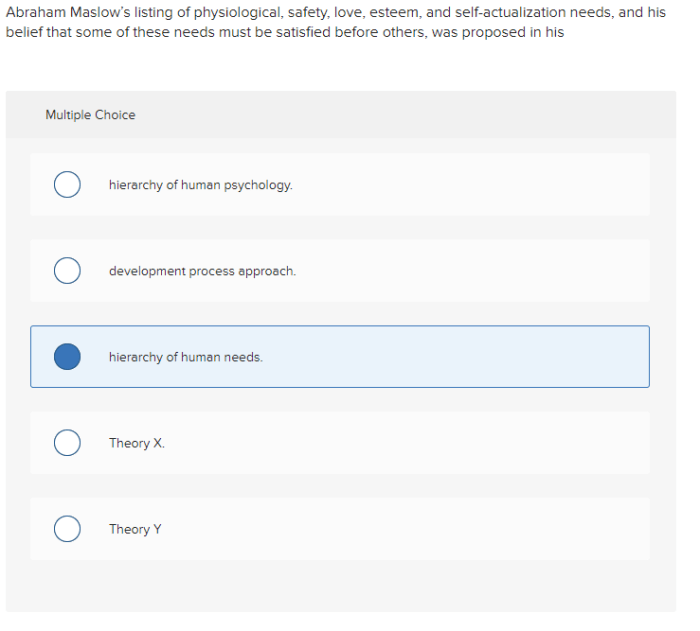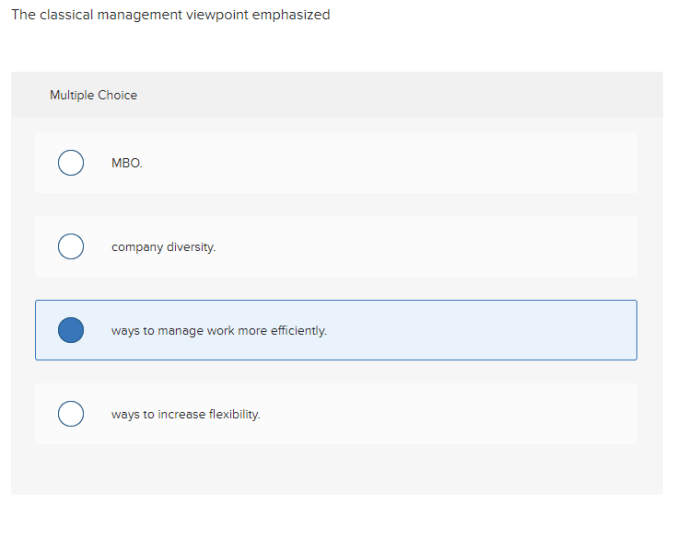The classical management viewpoint emphasized – The classical management viewpoint, emphasizing bureaucracy, rationality, and efficiency, has shaped organizational practices for over a century. Rooted in the belief that organizations could be scientifically managed to maximize productivity, this viewpoint has left a lasting legacy in modern management approaches.
This viewpoint emerged during the Industrial Revolution, characterized by the need for efficient and standardized production processes. Key figures like Frederick Winslow Taylor and Max Weber advocated for the principles of division of labor, specialization, and scientific management.
Classical Management Viewpoint: Principles and Evolution

The classical management viewpoint emerged during the Industrial Revolution as a response to the need for increased efficiency and productivity in organizations. It emphasizes a rational and scientific approach to management, with a focus on division of labor, specialization, and scientific management.
The key principles of the classical management viewpoint include:
- Division of labor: Breaking down tasks into smaller, specialized components.
- Specialization: Assigning workers to specific tasks based on their skills and abilities.
- Scientific management: Using scientific methods to study and improve work processes.
- Hierarchy: Establishing a clear chain of command with defined roles and responsibilities.
Over time, the classical management viewpoint has evolved in response to changing business conditions and the emergence of new management theories. However, its core principles remain influential in many organizations today.
Bureaucracy and Rationality in the Classical Viewpoint: The Classical Management Viewpoint Emphasized
Bureaucracy is a key concept in the classical management viewpoint. It refers to a system of organization characterized by a clear hierarchy, division of labor, and formal rules and procedures.
Bureaucracy offers several advantages, including:
- Efficiency: Clear rules and procedures help to streamline work processes.
- Objectivity: Decisions are based on objective criteria rather than personal biases.
However, bureaucracy can also have disadvantages, such as:
- Rigidity: Rules and procedures can make it difficult to adapt to changing circumstances.
- Alienation: Workers may feel isolated and powerless in a bureaucratic system.
The classical management viewpoint emphasizes rationality and objectivity in decision-making. Managers are expected to use logical analysis and empirical data to make decisions that are in the best interests of the organization.
Division of Labor and Specialization

Division of labor is a key principle of the classical management viewpoint. It involves breaking down tasks into smaller, specialized components. This allows workers to focus on specific tasks and develop expertise in those areas.
Specialization offers several benefits, including:
- Increased efficiency: Workers can become more proficient at their specialized tasks.
- Improved quality: Workers can focus on developing their skills in a specific area.
- Reduced costs: Specialization can lead to economies of scale.
However, specialization can also have drawbacks, such as:
- Alienation: Workers may feel isolated and bored when they are assigned to repetitive tasks.
- Reduced flexibility: Specialized workers may not be able to adapt to changing circumstances.
Examples of division of labor and specialization can be found in a wide range of industries and organizations, including manufacturing, healthcare, and retail.
Scientific Management and Efficiency

Scientific management is a key principle of the classical management viewpoint. It involves using scientific methods to study and improve work processes.
Frederick Winslow Taylor was a pioneer in the field of scientific management. He developed a number of techniques to improve productivity, including time and motion studies.
Scientific management has had a significant impact on workplace practices. It has led to increased productivity, improved quality, and reduced costs.
Comparison with Modern Management Approaches

The classical management viewpoint has been criticized for being too rigid and mechanistic. Modern management approaches, such as agile and human-centered management, offer a more flexible and people-centric approach to management.
Agile management emphasizes flexibility, adaptability, and customer focus. Human-centered management focuses on the needs and well-being of employees.
While the classical management viewpoint has its limitations, it remains relevant in certain situations. It can be effective in organizations that require a high degree of efficiency and control.
Top FAQs
What are the key principles of the classical management viewpoint?
The key principles include division of labor, specialization, scientific management, bureaucracy, and an emphasis on rationality and efficiency.
How has the classical management viewpoint evolved over time?
The viewpoint has evolved to incorporate human relations and behavioral approaches, recognizing the importance of employee motivation and satisfaction.
What are the strengths and weaknesses of the classical management viewpoint?
Strengths include efficiency, standardization, and a clear chain of command. Weaknesses include rigidity, lack of flexibility, and potential for alienation.